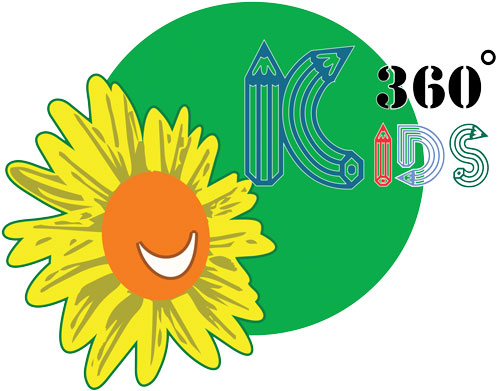Young children are naturally curious and ask many questions about their world and the things that puzzle them. Science and technology in preschool need to build on children’s natural curiosity and sense of wonder. By observing and exploring the world using all their senses, with guidance from their teacher, and by interacting with their classmates, they begin to connect their prior knowledge and experience with their experiences in new contexts to develop an understanding of the world around them.
To meet the needs of these inquisitive children, the learning environment must be active, hands-on, child-centred, and inquiry-based. The teacher at 360 Kids Play School plays a critical role in creating an environment to support children’s scientific inquiry and engagement in the technological design process. The teacher supports children through the problem-solving process, encouraging them to try something new, persist, and find alternative solutions. The teacher challenges children to use their observations to predict and draw conclusions, to think about how things work, and to think about why something happened, and encourages them to reflect on what they could do differently or change the next time. Teachers plan time for children to formally and informally share their questions and celebrate their discoveries.
The teacher’s knowledge of how young children learn is the basis for providing carefully designed, high-quality, hands-on learning experiences within and outside the classroom. The use of concrete materials both commercial and found, models, visuals, books as sources of information, and computer software enhances children’s vocabulary development and their scientific and technological knowledge.
Children need time and repeated opportunities to develop the skills required for learning in science and technology. They may need to be exposed to the same investigation on several occasions to reinforce what they have learned and to help them take what they have learned from one experience and apply it in another context. Children need opportunities to demonstrate their learning in many ways – through representing, or discussing their investigations with a classmate.
It is important for all young children to see themselves as scientists and as people who can work with technology as they investigate their world. Like scientists, they will be observing and sometimes recording their observations, making predictions, asking questions, making comparisons, investigating, drawing conclusions, and applying problem-solving skills. Science is not simply rote memorization of facts; it is a way of learning about or constructing understanding of the world in which we live.
Developing this way of thinking and learning will lay the foundations for further learning as students continue to develop their understanding of science and technology throughout their years in formal school.
OVERALL EXPECTATIONS
By the end of Kindergarten, children will:
1.Demonstrate an awareness of the natural and human-made environment through hands-on investigations, observation, questioning, and sharing of their findings.
2.Conduct simple investigations through free exploration, focused exploration, and guided activity, using inquiry skills (observing, questioning, planning an investigation, carrying out the investigation, and communicating findings).
3.Demonstrate an understanding of and care for the natural world
4.Investigate and talk about the characteristics and functions of some common materials, and use these materials safely
5.Recognize and use safely some common forms of technology.

